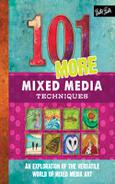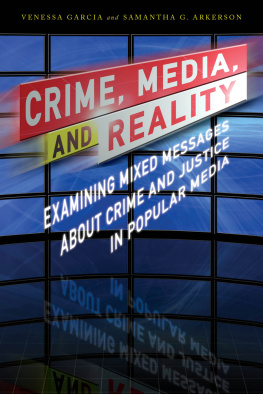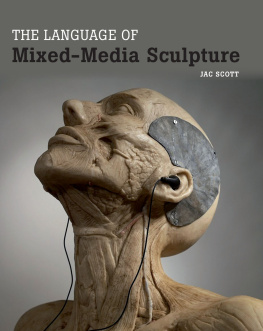Preface
The editor was sure I was a spy. It was clear within five minutes of my arrival at her office on a chilly spring morning. I had met with her there before, but this time she was cold and harsh. There will not be any interview, she said gruffly, turning back to the work on her desk. I asked if there was a better time to stop by, but she waved her hand dismissively without raising her eyes from her work. I stood sheepishly for a few moments in her doorway, until she raised her head and stared at me. Why are you still here? she demanded. I mumbled some kind of apology, then turned away and wandered the halls of the office building looking for other acquaintances, not knowing what else to do. Oh no, I thought. Ive been frozen out.
I had come to Buryatia, a Siberian border republic named for an ethnic minority of Russia, to study the role of minority-language media in society. This was in the 2000s, and I was a young graduate studentonly in my twenties, and still new to ethnography. I knew I couldnt force rapport with people, but it isnt nice to be disliked in any case, and I was worried about access to the people I needed to participate in my research. The circle of journalists, linguists, and teachers involved in minority media production was small, and I couldnt afford to alienate anyone. One of my colleagues in that same circle, a linguist, later confirmed that the editor had decided I was a shpionka, a spy sent by the US government to learn about Russias border regions, for unspecified but surely nefarious ends. Why else, the editor reasoned, would I have been learning the Buryat language?
This was exactly what Americans had warned me would happen. When I had told other Russianists about my plans to study media institutions, many of them had predicted I would never be allowed in. Most of Buryatias minority media are produced inside media institutions funded and managed by the state, which do not have a reputation for welcoming foreigners. What are you going to do? asked one historian, laughing. Show up and say Id like to come in? Hahaha! Their skepticism was not unfounded. My research interests in language were not political per se, but media institutions in Russia were inherently political. And so was language. Any question I could ask about the Buryat language, from spelling to dialect differences, was intimately tied to political status, to state power, and to the past, present, and future of Buryat political autonomy. These are sensitive topics in Russia, and I, neither Russian nor Buryat, began my research as a total outsider. Why would anyone ever talk to me?
One answer is that not everyone is afraid of outsiders. The point of ethnography is to make humans intelligible to one another by explaining alternative possibilities and social worlds. Happily, many people are enthusiastic about sharing their culture with an outsider. The editor who was convinced I was a spy did not convince her colleagues of it. In fact, they told me later that she had always been like that (takoi)that is, suspicious. They were quick to distance themselves from what they saw as a closed-minded and parochial response. Other editorsand reporters, linguists, activists, and many, many other people over fifteen yearsgenerously opened their doors to me, both at work and at home, and shared their lives with me. One contact led to another contact. I was not an outsider for long.
There was also a more specific way in which my strangeness made me more approachable, not only to cosmopolitan linguists but to a wide variety of people I would not otherwise have met. Buryats are as diverse a group of people as any other, and in this book I wanted to include perspectives from across Buryat society. But at first I struggled to extend my social networks beyond well-educated elites. Then, in 2009, I gave two interviews in Buryat for local television. Strangers approached me for months afterward to tell me about the big impression (bolshoe vpechatlenie) it had made to hear Buryat from a girl of a European face (evropeiskogo litsa). My pointed nose, creased eyelids, and freckles became my most salient features. Long, pointed European noses are the subject of racialized humor in Buryat, and Russians are often derogatorily called big-nosed ( tomo khamartai or tomo nostoi ). The first time I was referred to in this way, by my friends mother, my friend had to explain the joke. But youre very pretty, she quickly assured me. Only a little big-nosed. Whatever its true extent, my noses televised grandeur granted me new access to people throughout Buryatia. After those broadcasts, I could arrive in a village unannounced and be recognized on the street and invited into peoples homes. Because recorded broadcasts have long afterlives, I still hear second- and thirdhand reports of my linguistic prowess. Such reports are exaggerated; my nose granted me latitude in peoples estimation of my Buryat abilities, and my competence was persistently and generously overestimated. But the quality of my language wasnt the point. Speaking Buryat at all showed my sincere interest and investment in Buryat affairs writ large.
The way I was incorporated into Buryat communities shows how language, in all its mediated forms, connects seemingly unrelated aspects of social life. The editor who thought I was a spy was convinced that no American would learn Buryat unless pressed to do so by a foreign government. (I wasnt.) Audiences who appreciated my appearances on television took my learning Buryat as evidence of my deep interest in Buryatia. (It was.) While they reached different conclusions, they also agreed on some important points: that an outsider learning Buryat was evidence of something; that there were people one could expect to know Buryat, or to not know it; and that knowledge of the language was somehow key to Buryat belonging. They did not articulate their views this way, but underlying their reactions to me were some powerful assumptions about what language can reflect and do.
This is why I wrote this book. In introductory courses in anthropology, we like to say that language is culture, or at least that language is a large part of culture. But how does language become a stand-in for culture, and for other forms of belonging? How do people in positions of power stand to benefit (or not) from making those connections? Why and how might institutions promote some ways of imagining language while denigrating others? This book goes to Russia, where state power has long permeated discussions of linguistic and cultural belonging, to answer these questions.
Acknowledgments
Over many years working on this book, I have accumulated an enormous debt of gratitude to people across two continents. First and foremost, I thank the people in Buryatia who opened their doors to me, especially the several families who hosted me and shared their lives, and the editors, journalists, and interviewees whose participation made this book possible. To protect their identity, their names do not appear here. But you know who you are, and I hope you see yourself reflected accurately in this book. Hain daa .
Colleagues in Buryatias robust scholarly community always made me feel welcome in Ulan-Ude; among them I especially thank Zhargal Aiushievna Aiakova, Darima Dashievna Amogolonova, Irina Sergeevna Boldonova, Margarita Maksimovna Boronova, Polina Purbuevna Dashinimaeva, Galina Aleksandrovna Dyrkheeva, Tatiana Dmitrievna Skrynnikova, and Babasan Dorzhievich Tsyrenov. I am grateful to the late Jargal Namtarov, a gifted linguist and my first Buryat language teacher, and Viktor Dashanimaev, photographer, ornithologist, and friend, whose early enthusiasm for this book spurred me on but who did not live to see its completion. Boris Zolkhoev kept bureaucratic angst to a minimum and made one of my trips to Aga possible. Andrei Bazarov kindly invited me on his Russian Academy of Sciences expedition to study Buddhist textual practices in the eastern steppe districts. To Nikolai Tsyrempilov I am grateful for more than I can say; he has always been a consummate colleague and dear friend. Special thanks are due also to my teacher of Buryat of many years, Tsymzhit Badmazhapovna Bazarova, for her unfailing patience with my endless questions. I wish to stress that although the words, experiences, and opinions of many people in Buryatia animate the pages of this book, no one in Buryatia is responsible for the analysis that I present, including as regards Buryats political status. The conclusions I draw are mine alone.







